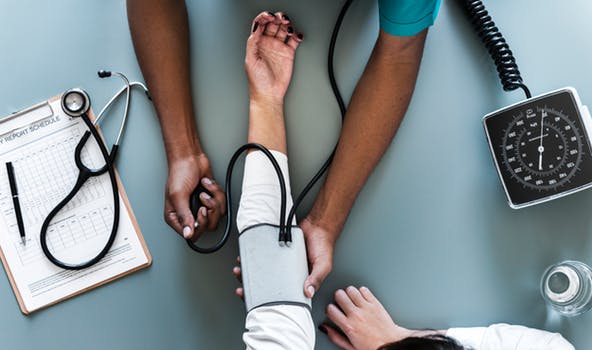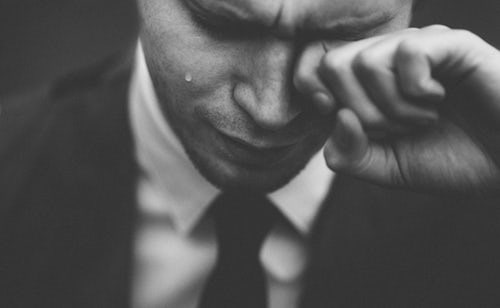Have you ever wondered how it’s possible for a human being to go against what is surely our most primal survival instinct – the need to eat- to the point of severe physical damage and in some cases death?
It must take superhuman levels of willpower and determination, right?
Well, in a way but would you be surprised to know that this is not true in the way you may be thinking because the part where the willpower and determination come in is in the opposite direction – to eat.
Anorexia Is A Disease

Anorexia nervosa is a disease, not a diet and not a choice.
I can see why this is confusing (even for health professionals) because in some cases the disease can be triggered when a person goes on a diet or makes an intentional attempt at weight loss. Thus, the logical connection between volitional weight loss and anorexia is (incorrectly) made.
The reality is that while wanting to lose weight, cutting food in order to lose weight and dieting, are non-useful interferences with our experiencing life to the fullest they are not in and of themselves diseases. Anorexia on the other hand is a disease. A disease in which structural and functional brain changes occur so much so that food becomes perceived as a threat.
Misidentification of Food As A Threat

Imagine the swathe of emotions that would engulf you if a tiger were to jump out of the bushes right now, if a shark were to swim up very quickly behind you next time you were enjoying a leisurely paddle or you had a near miss with an oncoming car.
Your emotional reaction would be instantaneous, yes? In that moment of surprise, fear and panic you couldn’t choose to feel any other way, yes? It is the same for someone with anorexia.
While the things which trigger a fear response in those with anorexia are logically far more benign and even what would otherwise be considered pleasurable (including food) the automatic bodily responses they induce are no less real or powerful and no more within their control than if they were telling you to jump into the midst of the shark feeding frenzy. All the reassurance in the world would not override your instinct that this advice was wrong.
Why Do Some People Develop Anorexia While Others Don’t?

Did you know there are only two things needed for someone to develop anorexia nervosa?
- A genetic predisposition
and
- A period of energy (calorie) deficit
On top of this there are certain personality traits including perfectionism, anxiety and inhibition which are thought to further increase someone’s susceptibility to developing this disease. What this means is that these things put you at higher risk of developing the disease. What this does not mean is that you are destined to develop the disease.
Why on Earth Would Anyone Have a Genetic Predisposition for “Disease”?

In most people (and animals) when faced with a lack of food and the beginnings of starvation intense hunger, decreased movement and an all-consuming preoccupation with food are the norm.
However, this is not the case for individuals with a genetic predisposition towards anorexia. In fact, these individuals experience the opposite.
When faced with lack of food and starvation they feel satiated, energised, compelled to increase exercise levels and are generally unconcerned by their life-threatening physical deterioration. In short not eating feels natural.
Migration Theory

This may seem counter intuitive at first but what’s been termed the “Migration theory” offers an explanation as to why this may be so.
It has been theorised that this set of characteristics (not feeling hungry, feeling energised, compulsion to move and indifference to the shocking physical effects of starvation) are carry over adaptations from times in our distant past where we were faced with periods of food scarcity.
It is thought that rather than staying still and starving to death in an area where there was no food these adaptations allowed some people to move on to new locations and find food. Under such conditions this genetic ability to function well in starvation would have been an advantage and it’s even suggested that people with a genetic predisposition that granted a higher tolerance to the stress of starvation were likely tribe leaders back in the day.
Interestingly when we view anorexia in this light it is not so much a disease or something going wrong but something going right.
In this light part of the “symptoms” of anorexia are the result of a normal response to starvation (normal in some people). Which means rather than fight this we can learn to work with it in treatment.
What Causes An Energy Deficit?

The second part of the equation necessary to develop anorexia is a period of energy deficit (aka not eating enough food to meet your body’s energy needs).
This energy deficit does not have to be an intentional attempt at weight loss or eating less it can be the result of a great many things outside of the individual’s control. For example, trauma, removal of wisdom teeth, illness preventing adequate food intake or increased exercise without a corresponding increase in food intake.
Regardless of what the precipitating factor (be this intentional dieting, one of the examples above or other) there is a point where the alterations in thought processes and behaviours are no longer within the conscious control of the individual.
Why Does Anorexia Persist When People Have Access to Food?

To summarise: There are two things 1. A genetic component and 2. A period of energy deficit which make the development of anorexia possible.
The next logical question to ask now is why doesn’t someone who has developed anorexia due to these factors cannot “just eat” when adequate food is made available to them?
To answer this, I am going to attempt to very briefly explain 5 main reasons why someone once they’ve developed anorexia cannot “just eat”.
What I want you to keep in mind as you read these next few paragraphs and especially for those who are suffering or who have loved ones who are suffering is that in no way am I trying to capture the utter confusion and pain of what it really feels like to be stuck in the disease. If you’re after any level of shocking or romanticised portrayal of anorexia I suggest to stop reading now and don’t waste your time because you won’t find it here (you can find that elsewhere).
Your “problems” are medical, your “problems” are human and not personal and definitely not moral. It is my intention to dispel the myth that your cure just requires more willpower, determination, logic, reasoning or motivation because when you understand this you can move past the shame, the guilt and the blame. And when you can move past all that you can seek the great help you need to overcome what is truly preventing you from living the full life you were made to.
The first thing which allows for anorexia to persist and perpetuates the feeling of it being “wrong” to eat despite you “knowing” better and wanting to “get better” is:
- Unconscious Conditioning

Unconscious conditioning is when “this” becomes associated with “that”.
In other words, “this” thing triggers “that” response or “this” thing is an anchor for “that” response.
Have you heard of the famous experiment of Pavlov and his dogs? In a nutshell the experiment went like this – the experimenter would bring out food for some dogs and the dogs seeing and smelling the food would salivate. To signify the delivery of the food the experimenter would also ring a bell until eventually all the experimenter had to do was ring the bell and the dogs would salivate in response to the sound of the bell and without the need for food to be present at all. Aka the dogs had become unconsciously conditioned to associate “sound of bell” with “food” and their bodies automatically reacted accordingly (by salivating).
In a similar way you may have experienced a time when you’ve looked at the clock and realised it was lunch time and felt instantly hungry where a moment before you weren’t even thinking about food. That’s unconscious conditioning where the time is the trigger and your automatic hunger the unconscious response. It’s unconscious because you do not decide for your stomach to grumble just as the dogs did not decide to salivate these responses happened outside of your and their awareness.
There are numerous unconscious conditionings that maintain anorexia. The most obvious would be associations with bad experiences around food. If each time you eat you feel stressed out, panicky and anxious pretty soon your brain gets the message that food and eating is associated with stress and you don’t even have to know why or how because it begins to happen reliably and automatically (as in the case of the bell and the dog salivation).
2. Emotional Learning

If an “event” occurs with enough emotional impact, we have what’s called an “emotional learning”. That is where our brain comes up with this event means this. For example, many people have had the experience of reading out loud in class as a child and having other kids (or the teacher) put them down. This experience can be emotional and become an emotional learning and because an emotional learning is designed to stay in our brains and affect us for the rest of our lives (i.e. not fade out over time) such an event could translate as a fear of public speaking in adulthood.
Thus, if someone has a significant emotional event and associates that event with food or with the thought that eating is “bad” or “wrong” that becomes connected at an unconscious level. Food = bad = avoid it at all cost.
A significant emotional event doesn’t have to be extreme trauma (although sometimes it is). It can be anything that was meaningful to the person at the time including an offhand comment from a relative about your body shape and size, how much you were eating or something entirely unrelated to food that your brain has (mis)connected to food simply because it came up around the same time (like the bell in the case of Pavlov’s dogs because in the everyday reality of a dog’s life the sound of a bell has nothing to do with food). Hence two very unrelated things can become associated what you eat and your self-worth for example.
3. An Environment Which Maintains or Promotes Anorexia

If you live, work or play in an environment in which you are consistently exposed to the same “triggers” this reinforces the neural connections between those “triggers” and the unconscious response. For example, if you live with people who talk each day about what they eat this is going to reinforce in your mind (at an unconscious level) that what you eat is uber important and you should always be paying attention to it.
It doesn’t have to be this obvious either for example seeing the grey colour of your kitchen each morning may immediately and unconsciously bring up the thought “I am not good enough and I don’t deserve to eat” and all the emotions connected to that thought. This happens out of your awareness because clearly you don’t look at the grey of your kitchen and decide to feel “not good enough and I don’t deserve to eat” it happens automatically. Which means you truly have no idea why you are feeling bad and it’s simply that two unrelated things have become unknowingly unconsciously and non-usefully connected.
Unfortunately, in practice when things like this happen because of our need to understand and make sense of what’s going on we try to logically come up with explanations as to why we’re feeling what we’re feeling. Essentially what this means is that whatever we come up with is partly make believe. We don’t know why we felt the way we did we’ve just made up a reason to explain and justify it and often that can be a big list of all the things that are wrong with you.
If parts of your daily environment are “triggering” you unconsciously and serving to maintain the eating disorder, there are two things we can do 1. Change your environment and 2. Develop new ways of responding to that same environment. In most cases the second choice is the most useful and this is what we do during hypnosis sessions because an automatic response needs to be updated from a different part of your mind to the logical and reasoning part.
4. Beliefs About What is Possible

Imagine if you believed it was possible to recover.
Now imagine if you believed it wasn’t possible to recover.
Would each belief influence your actions in different ways? Of course!
When you’ve had multiple experiences of trying and “failing” to recover it can make the belief that there is “no hope and I can’t get better” pretty strong and unlikely to change because even if you want to believe you can recover beliefs don’t change through willpower, want or even rationalisation. Beliefs change through evidence.
This is why just wanting to believe doesn’t work. Wanting to believe and believing are not the same thing. When you have more evidence in support of your incapability than your capability the chances of changing the belief that you are incapable (or even identifying that it is a “belief” because beliefs are things we “know” to be true and why would you even question something you “know” to be true?) to a belief that you are capable are low.
So, how do you change beliefs?
There is a process called memory reconsolidation which I use when I am working with people in recovery from eating disorders which first destabilises old, rigid and non-useful beliefs (including beliefs you may not even know you have). This period of destabilisation essentially allows you a time period in which you can update your beliefs to be what you choose (i.e. beliefs which make your life better by your definitions and your standards) because while it may not be necessary to believe you can recover to begin recovery at some point you need to believe it’s possible. For it is your beliefs which stop you from being able to act in new ways and recovery by definition requires acting in new ways.
When I work with people in recover from eating disorders my role is always to increase their leadership and participation in their own life and a big part of this is facilitating them to choose empowering, competent and confident beliefs that support the life they want to live and most importantly the person capable of living such a life.
5. Underdeveloped Sense of Self And Self-Identity

Often when someone has lived with anorexia for many years it becomes entwined with or even synonymous with their self-identity.
If your sense of self is so closely enmeshed with or inseparable from the eating disorder, there is no way to get rid of the eating disorder and survive let alone thrive because you can’t survive after getting rid of you.
Which means you must simultaneously develop a sense of your true self.
This doesn’t mean you have to know exactly who you will be on the other side of recovery and have it all figured out before you recover. It means the opposite. It means letting go of the need to know ahead of time and taking it step by step.
I would even go so far as to say developing a sense of self is less about creating, choosing, striving, forcing yourself to be who you want to be and more about unbecoming everything related to anorexia so your sense of self can naturally come out.
Only when you’re free of anorexia can you really take it further and explore into deeper levels of personal development and intentionally design more fully who you want to be because only when you are free from anorexia will this no longer be driven from a place of fear or because your self-worth is on the line.
Can You Fully Recover from Anorexia?

Yes.
In 100% of cases.
All the time.
Without exception.
Absolutely.
Do not waste your time dealing with anyone who tells you otherwise.
What It Takes

Recovery takes doing what to you feels very unnatural – eating.
But and this is a huge but, it is not about fighting to do the eating when it feels bad over and over and over until one day fingers crossed, hopefully it magically feels good because this won’t happen. Remember emotional learnings are designed to not fade out over time (and even if it did eventually fade that’s a whole load of time you’ve “wasted” feeling shit).
So, what is it about? It’s about updating from the level at which the problem exists – updating from the unconscious, automatic level so that eating (and all those other things which are hard and feel wrong but which you “know” are good and which you want to do to support the life you want to live and the person you want to be) becomes natural, easy and effortless, no struggle, no internal battle between what you logically want and what you feel. Just no longer a problem.
My most favourite sentence to hear my clients say is “wow it’s just not even a thing is it?”.
Take Home Message

There you have it what makes it possible for someone to go against the most fundamental of the survival instincts – eating – to the point of great medical compromise and death is because to them it is not going against their instincts but with.
If you are reading this and you have been beating yourself up over not being able to “just eat” I hope you now see that this is a ridiculous and entirely unrealistic expectation.
Anorexia is not a question of your worth or your morality, it is not something you can logic, willpower, motivate, scare or self-help book your way out of. Don’t waste any more time pretending it is.
Graciously place all the bullshit (shame, blame and guilt) aside and get the great help you need from those who not only care but also have the competence and understanding of this disease to facilitate your healing, empowerment and growth in the ways which are right for you.
I know it is all so serious now but one day you won’t judge yourself. One day, you’ll laugh at even the strangest, most fucked up thing this disease made you do. Why not bring that day a little closer?
Ps. And hey if you don’t like the happy, healthy and fulfilling life you create you can always go back to anorexia but please do not go your whole life without ever knowing what it could have been like.
With My Whole Heart I Wish You Learn to Believe In Your Magic.

Yours in health, happiness and fulfilment,
Bonnie.



